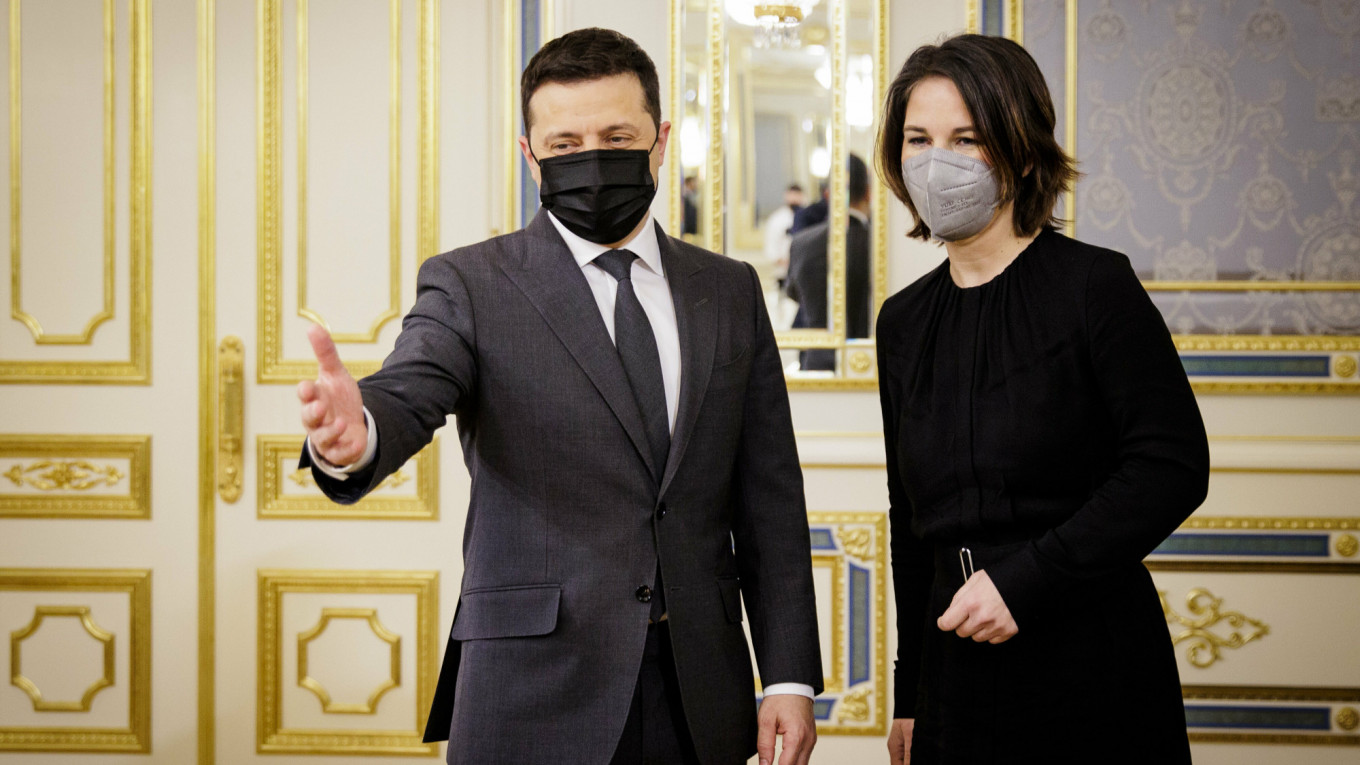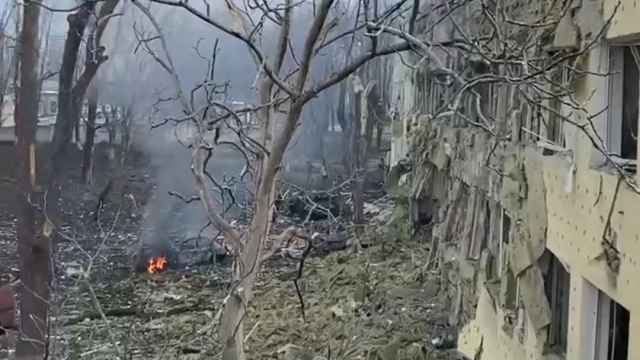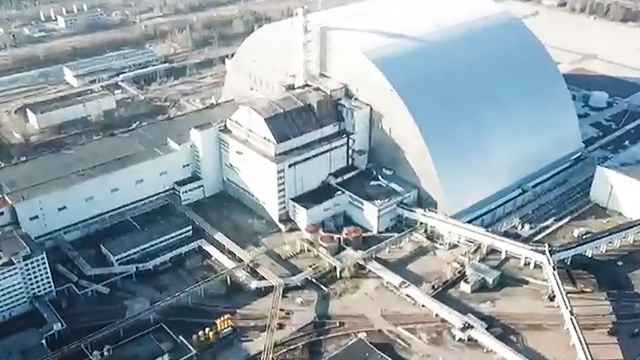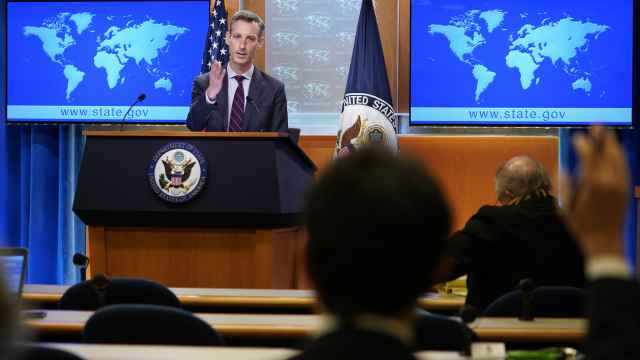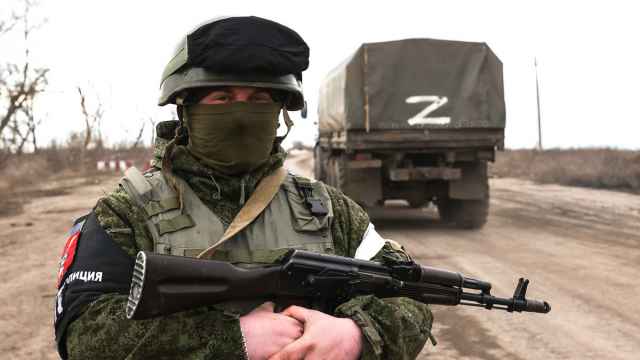Germany's foreign minister warned Saturday against trying to guess or assume Russia's decisions on Ukraine, toning down the rhetoric after Washington's fierce warnings of an imminent invasion.
"We do not know yet if an attack has been decided on," Foreign Minister Annalena Baerbock said on the sidelines of the Munich Security Conference, adding that the "threat against Ukraine is very real."
Ukrainian President Volodymyr Zelensky, attending the same conference, also pushed back against Washington's dire predictions.
"We do not think that we need to panic," Zelensky told an audience of top-level officials and security experts from around the world.
U.S. President Joe Biden had said a day earlier that he was "convinced" Russian President Vladimir Putin had "made the decision" to attack Ukraine, sending fears soaring that a major conflict could break out in Europe.
Baerbock made her remarks after hosting a G7 foreign ministers' meeting on the fringes of the Munich gathering, which has been dominated by the Ukraine crisis this year.
The group of seven most developed nations — including the United States — reaffirmed that they were "united" in their support for Ukraine and determined to respond to any violation of its sovereignty, said Baerbock, whose country holds the rotating G7 presidency.
"Pull your troops back, avoid damage to Russia and Ukraine and let us talk," Baerbock said in an appeal to Putin.
But the message of unity was slightly undermined by Baerbock's refusal to echo U.S. claims that Russia could invade Ukraine any moment now.
"In crisis situations, the most inappropriate thing to do is to somehow guess or assume," Baerbock told reporters, after being repeatedly pressed on whether Germany shared Biden's assessment.
Speaking on the main stage in Munich, Zelensky said it was "difficult for me to judge" the U.S. intelligence behind the warnings, but "I trust Ukrainian intelligence, who understand what's going on along our borders."
Zelensky also touched on the toll the incessant threat of war was taking on his country, both on people's mental health and on the economy.
"We need to preserve our stability. We need to keep calm and be adults," he said.
NATO chief Jens Stoltenberg, speaking to German broadcaster ARD, stuck more closely to the U.S. line when he described the risk of an attack as "very high."
"Every indication indicates that Russia is planning a full-fledged attack against Ukraine," Stoltenberg said.
Nord Stream 2 spat
Western and NATO allies have been at pains to present a united front, warning Russia of severe consequences in case of any further escalations.
Baerbock reiterated in Munich that Russia would face "unprecedented" sanctions, some of which would bring economic pain to the countries imposing them.
That includes potentially halting the not-yet-certified Nord Stream 2 gas pipeline between Russia and Germany, she said, an issue that had previously driven a wedge in transatlantic relations.
The project, backed by Germany's previous chancellor Angela Merkel, has long irked the U.S. and Germany's European partners, who believe it will be used as a geopolitical weapon by Putin.
Germany's early reluctance to explicitly put Nord Stream 2 on the list of possible sanctions exasperated allies, particularly Washington, and raised doubts about Berlin's resolve in the Ukraine crisis.
New Chancellor Olaf Scholz traveled to Washington earlier this month to reassure President Biden that Germany could be counted on, and made clear that the pipeline would be stopped should Russia invade Ukraine.
U.S. Secretary of State Antony Blinken, in an interview with Germany's Sueddeutsche newspaper, praised America's reinvigorated relationship with European allies and the "incredibly close cooperation" with Germany.
The joint response to any Russian aggression will be swift and determined, he said in Munich.
"I have never experienced such a level of coordination before," Blinken added, in comments translated into German.
A Message from The Moscow Times:
Dear readers,
We are facing unprecedented challenges. Russia's Prosecutor General's Office has designated The Moscow Times as an "undesirable" organization, criminalizing our work and putting our staff at risk of prosecution. This follows our earlier unjust labeling as a "foreign agent."
These actions are direct attempts to silence independent journalism in Russia. The authorities claim our work "discredits the decisions of the Russian leadership." We see things differently: we strive to provide accurate, unbiased reporting on Russia.
We, the journalists of The Moscow Times, refuse to be silenced. But to continue our work, we need your help.
Your support, no matter how small, makes a world of difference. If you can, please support us monthly starting from just $2. It's quick to set up, and every contribution makes a significant impact.
By supporting The Moscow Times, you're defending open, independent journalism in the face of repression. Thank you for standing with us.
Remind me later.


